Raising a Highly Sensitive Child: What You Need to Know

Introduction Rearing a highly sensitive child is a special and fulfilling experience that is accompanied with its pleasures and struggles. Such children have a strong sense of empathy, high level of intuition and heightened sensitivity and therefore they are more sensitive to the environment they are in, but are also prone to overwhelm. Since you are the conscious parent, it is important to be aware of the sensibilities of your child and apply nurturing principles to grow and acquire strength in the fast-paced world. Under the direction of Vedangi Brahmbhatt, an expert child development expert, this blog provides insights to the USA family in need of knowing, supporting, and empowering their highly sensitive child through practical and empathetic tools. 1. Recognize Sensitivity as a Strength, Not a Weakness Highly sensitive children are usually not understood, especially in a place where emotional expression is not appreciated. Such children can be very sensitive to sensory activities (such as loudness or rough clothes), the alteration of routines, or even slight change in the dynamics of the family. Mindful parenting proposes that we embrace these qualities instead of suppressing them. Thanks to proper toddler activities, taking into consideration sensory preferences and emotional comfort (gentle play, quiet time, art, walks in nature), parents can make sensitive kids prosper. 2. Use Nonviolent Communication and Positive Discipline Sensitive children require discipline–not by inflicting severe punishments on them or yelling at them. Nonviolent communication is a technique that is centered on empathy, validation, and direction of behavior using soft boundaries. The positive discipline practices with the toddlers, including the ability to provide clear options and kind of reminders, can develop confidence instead of fear. Family meetings when all family members are free to show their emotions are a great practice of active listening parenting and conflict resolution. Hearing and understanding the sensitive children will help them gain strong emotion regulation ability. 3. Foster Holistic Child Development and Conscious Co-Parenting Rearing a highly sensitive child requires taking care of his/her mind, body and spirit. This demands a comprehensive approach to child development, including creative, physical and reflective activities, making environments feel secure, and allowing the child to have time off. There must be conscious co-parenting particularly in families where the people may react differently to sensitivity. Establishing regular habits, exchanging materials such as the most effective parenting books, and discussing the strategies on how to apply the techniques of conscious parenting at home openly will get both parents on the same page. Conclusion: It can be most rewarding to bring up a very sensitive child. These children flourish in a safe haven which is formed by compassion, mindfulness and routine. Individualized understanding and assistance may guide the parents to customize solutions to special challenges, which leads to the sense of security and strength in later life. To get professional assistance and materials, look at the consultations and courses created by Vedangi Brahmbhatt and aimed at conscious families. You should not forget to follow us on Instagram, and YouTube to receive updates, professional advice, and parenting inspirations. Hint: Do sensory check-ins- ask your child what it feels like to their bodies in experiences or whereabouts. Such frequent feedback assists in developing trust and understanding. To see the current news and updates, visit our recent press releases. Visit vedangibrahmbhatt.com for more resources, courses, and expert consultations—helping sensitive children flourish in every family.
Gentle Parenting vs. Conscious Parenting: What’s the Difference?
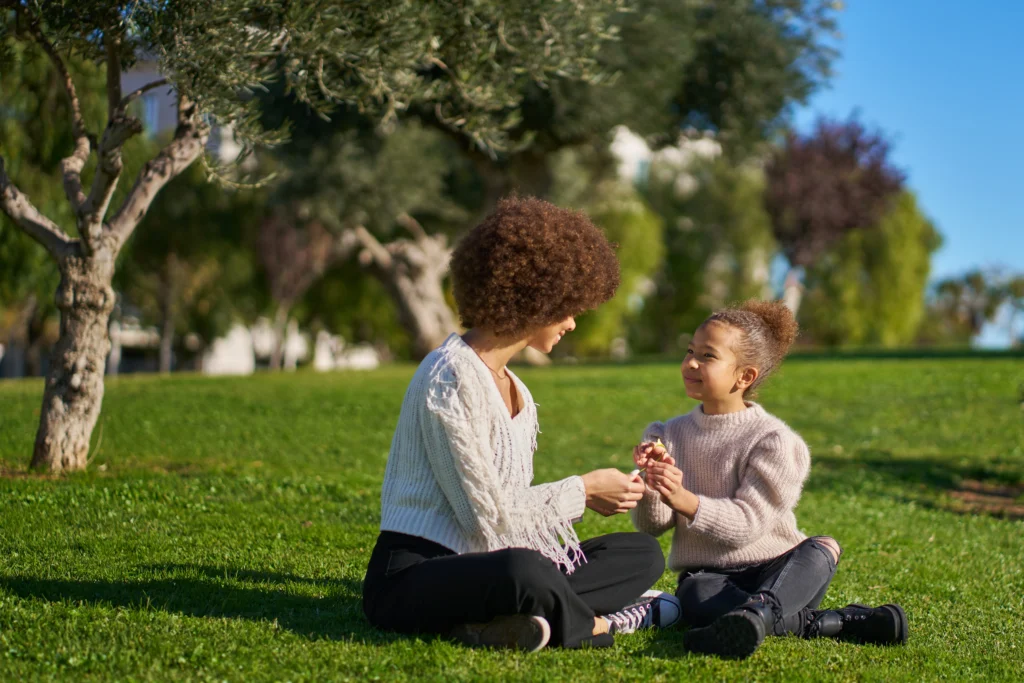
Introduction The paradigm of parenting has evolved greatly with families in search of models that are not just behavior oriented but those that are deeply concerned with the inner worlds of children that are involved with the emotional growth of such children. Gentle parenting and conscious parenting is one of the most discussed nowadays. It is necessary that parents in the USA are aware of the distinction between these philosophies to be able to make a decision that matches their values and needs of their child. I assist families in acquiring the knowledge and the resources necessary to support interconnected parenting in the present modern era at Vedangi Brahmbhatt with my backgrounds as a specialist in child development. Traced in this blog, I unfold each of these styles, how either has some special advantages, plus how either can come to the rescue of your family, in the daily toddler play, as well as in the difficult emotional situations. 1. The Foundation: What Sets Gentle and Conscious Parenting Apart? Kindness, respect, and empathy are the key elements of any interaction between a parent and his or her child, which is the foundation of gentle parenting. It is concerned with non-punitive discipline, empathy and encountering the children at the level they are feeling. When parents use the style, they are likely to revert to positive discipline with toddlers that are not based on shame/fear but on teaching rather than correcting. The conscious parent on the other hand is a self-conscious being, and an intended being. Conscious parenting can be defined as the act of sensitizing to triggers or emotional pattern and experience in order to respond rather than react to a child. It often incorporates practices like attentive parenting, daily self-reflection, and living in the moment to help the families to interrupt negative patterns and heal together. 2. Communication and Emotional Growth The two methods consider the significance of a non-violent communication and verify it in daily non-disrespectful conversations. Conscious parenting however, takes a step further to ask the parents to look into the nature of their emotional response. Active listening parenting is a strategy that helps a conscious parent not only to validate his or her child but also to be attentive to his or her own feelings and past damages that can be aroused. The two methods promote family gatherings to generate collaboration, trust and problem solving competence. These meetings are also being connected to the families where each individual is always welcomed to be open and engage in the working process of creating the family agreements and conflict resolution. 3. Holistic Child Development and the Role of Co-Parenting Gentle parenting and conscious parenting are differentiated such that both are committed to the holistic growth of the child such as emotional, cognitive and social growth. However, conscious parenting is particularly brilliant when it comes to the long-term outcomes, both in terms of generation. Through openness and mutual healing, the whole family system turns into a strong and healthy one. Conscious co-parenting enables the families to become united in values, emotional intelligence and teamwork in all parenting activities as well as regularities. These strategies can be easily incorporated into the routine, day-to-day life of toddler, as well as challenging transitions. The result? Children who grow with emotional self-control, confidence and inner security. Conclusion: Choosing the Right Path for Your Family It is true that the principles of gentle parenting and conscious parenting are similar, however, self-awareness and healing are the crucial distinction. Gentle parenting focuses on the child’s present experience, while conscious parenting encourages parents to reflect and grow continually. Together, they create a family culture of lifelong learning and empathy. My products and services are personal consultative work and materials offered to families seeking to further develop their parenting practice with the help of a professional. Get inspired, learn parenting tips, and stay updated on the latest mindful family living news. Follow me on Instagram, and YouTube. A little tip of mine here: you must begin small, it means for you to think of a single thoughtful moment a day and be attentive to your responses and how your parent child relationship starts to change. In order to see our recent press releases, visit the following page. We believe that empowered parenting at Vedangi Brahmbhatt is based on informed choices. You can access mindful and conscious education, books, and personalized guidance on your conscious journey by visiting vedangibrahmbhatt.com. Gentle Parenting vs. Conscious Parenting: What Is the Difference?
Self-Care for Conscious Parents: Why You Can’t Pour from an Empty Cup

Parenting is an unwavering journey that’s full of joy, trials and deep connections. Yet too often, parents – especially those striving to be the conscious parent – neglect their own well-being in the process, leading to burnout and exhaustion. The truth is, you’re not able to pour from an empty cup. Prioritising self-care is not selfish; it is an essential foundation for mindful parenting, Emotional Regulation Kids, and family harmony. Vedangi Brahmbhatt, a trusted Child Development Specialist, supports parents across the USA in embracing self-care practices that nourish the whole family system. This blog will share why self-care is important, ways to integrate it into your life in meaningful ways, and the positive impact it has on your kids. Self-Care Builds Your Ability to Parent Mindfully Mindful parenting requires patience, presence, and emotional regulation – all things that are hard to accomplish when running on empty. Taking time to recharge physically, emotionally, and mentally reestablishes your capacity to engage in Active Listening Parenting and respond thoughtfully, not react impulsively. Simple rituals including meditation, gentle exercise, or quietly reading (perhaps from one of the Best Parenting Books) increase calmness. When you care for yourself, you strengthen the foundation to implement Positive discipline strategies for toddlers effectively and compassionately. Modelling Healthy Habits Supports Holistic Child Development Children learn by example. When they witness parents pushing their own self interests, they learn valuable lessons about self-respect, balance, and emotional strength. This supports Holistic Child Development – nurturing emotional, social, cognitive, and physical growth. Incorporating Toddler Activities that encourage independence also allows parents designated rest and self-care moments. Through Family Meeting and open communication, families can create shared agreements that support everyone’s needs, cultivating an environment for healing and growth. Self-Care Allows Us to Consciously Co-Parent and Communicate When parents are feeling balanced, communication is improved, to benefit the whole family. Embracing conscious co-parenting with partners gets easier to do as stress and overwhelm dissipate. Parents can practice more effective Nonviolent Communication: creating security and trust. Regular check-ins, such as Family Meeting, create space to express feelings and adjust routines, supporting both parental well-being and children’s ability to regulate emotions. Managing your energy ensures the provision of a more loving and supportive home for your child’s flourishing. Conclusion: Fill Your Cup to Feed Your Family Self-care is an act of empowerment that’s essential in the mindful and intentional parenting journey. Taking care of yourself improves your relationship with your child and helps you have the clarity and compassion to navigate the ups and downs of parenting. For customised advice on How to implement conscious parenting techniques at home and conscious co-parenting, consult with Vedangi Brahmbhatt. Don’t forget to follow us on Instagram, and YouTube for more insight and practical tips about living mindfully as a family. Here’s a tip: schedule some short daily moments for yourself, even if just five minutes, to breathe deeply and reset your mindset. There is a profound difference in making a difference. For the latest in news and updates, please click here to access our recent press and news. At Vedangi Brahmbhatt, we believe taking care of yourself is what fuels your children’s growth. Visit vedangibrahmbhatt.com to view courses, Best Parenting Books, and consultations that nurture mindful thriving families, while embracing the Benefits of mindful parenting for child development.
Understanding Triggers And Why It’s Such An Important Part Of Parenting
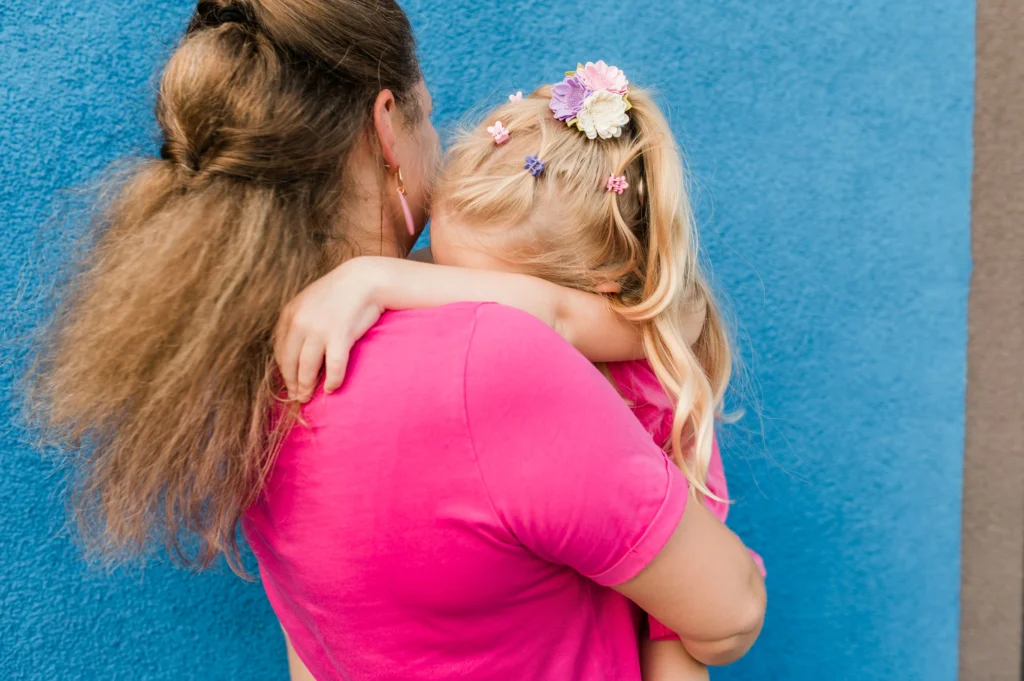
Triggers are emotional responses due to unresolved past woundedness or stresses (often resulting in exaggerated responses to basic parenting issues). For instance, a tantrum by a toddler may elicit out-of-proportion frustration that harkens back to your childhood. By developing self-awareness through practices like mindful parenting and Active Listening Parenting, you can identify these triggers before they escalate. This insight aids in changing responses to thoughtful reactions, setting a calmer tone and modelling Emotional Regulation Kids for your child. Using Nonviolent Communication to Respond, Not React When triggered, parents can unintentionally speak in ways that escalate conflicts, rather than resolving them. Employing Nonviolent Communication helps to express feelings and needs without blame or judgment. For instance, instead of reacting with anger to a toddler’s misbehaviour, calmly stating your concern and setting clear boundaries aligned with Positive discipline strategies for toddlers encourages cooperation and respect. Creating Supportive Family Structures with Family Meeting and conscious co-parenting Parental triggers may be reduced by developing strong family systems. Holding regular Family Meeting enables everyone, including children, to share their feelings, voice concerns, and devise solutions together. Additionally, practising conscious co-parenting helps to ensure consistent support and communication between caregivers, reducing stress triggers and reinforcing stable environments for kids’ Holistic Child Development. Conclusion: Master your Triggers to Embrace Empowered Parenting Awareness and management of your triggers are transformative for peaceful parenting and nurturing Emotional Regulation Kids need. For personalized strategies, connect with Vedangi Brahmbhatt’s expert consultations designed to help families thrive through conscious co-parenting and mindful parenting techniques, including How to implement conscious parenting techniques at home. Don’t forget to follow us on Instagram, and YouTube for regular insights and tips on Toddler Activities. Vedangi Brahmbhatt brings deep knowledge and heartfelt direction to empower parents on their journey. Visit vedangibrahmbhatt.com to browse courses, Best Parenting Books, and consultations designed to help families maintain healthy growth, while embracing the Benefits of mindful parenting for child development.
The Role of Inner Child Healing for Conscious Parenting

Parenting is one of the greatest catalysts for personal growth, a journey in which healing your inner child is as important as nurturing your own child. The conscious parent understands that unresolved wounds from their own childhood can influence how they respond to their children. For parents all throughout the USA who are looking for connection and mindful family living, embracing inner child healing brings profound transformation for both generations. Vedangi Brahmbhatt, an experienced Child Development Specialist and advocate for mindful parenting, emphasises integrating inner healing with How to implement conscious parenting techniques at home. This holistic approach aids Emotional Regulation Kids, enhances bonds, and fosters healthier family environments. Understanding the Inner Child’s Role in Parenting Patterns Our inner child carries memories, emotions, and beliefs established during early experiences. Without healing these parts, parents can unconsciously repeat patterns of behaviour sometimes harshly setting limits, struggling with regulation, or avoiding conflict out of fear. Understanding the influence that your inner child has on your parenting helps break these cycles. Through practices often accompanying the conscious parent teachings, such as Active Listening Parenting and Nonviolent Communication, healing creates space for empathy and patience, enriching both your growth and your child’s development. Healing the Inner Child Aids in Emotional Regulation Kids When parents attend to their own emotional wounds, they are better equipped to help with Emotional Regulation. Kids need to thrive. Healing cultivates calm and self-awareness, which models resilience and emotional intelligence for children. This aligns with Holistic Child Development principles that nurture the whole child emotionally, socially, and cognitively. As parents heal, they create safer environments for children to explore emotions securely, strengthening cooperation and attachment key Benefits of mindful parenting for child development. Strengthening Family through conscious co-parenting and Family Meeting Inner child healing also improves relationships within the family system. Couples who practise conscious co-parenting with healing awareness foster compassionate and consistent communication, reducing conflicts that affect children. Using Family Meeting to openly discuss feelings and expectations encourages openness and participation. These tools, inspired by mindful parenting, build environments where families can co-create respect, understanding, and collective healing. Conclusion: Embracing Inner Child Healing to Change Your Parenting Journey Understanding and nurturing your inner child is critical to becoming the conscious parent you aspire to be. It helps dismantle toxic patterns, manage emotions healthily, and develop heart-centred relationships within your family. For customised advice, you can consult with Vedangi Brahmbhatt or explore resources such as the Best Parenting Books, courses, and consultations to support your journey. Don’t forget to follow us on Instagram, and YouTube for more inspiration on Toddler Activities, mindful parenting, and child development.
Why Parenting Is About You, Not Just Your Child: A Conscious Parenting Perspective
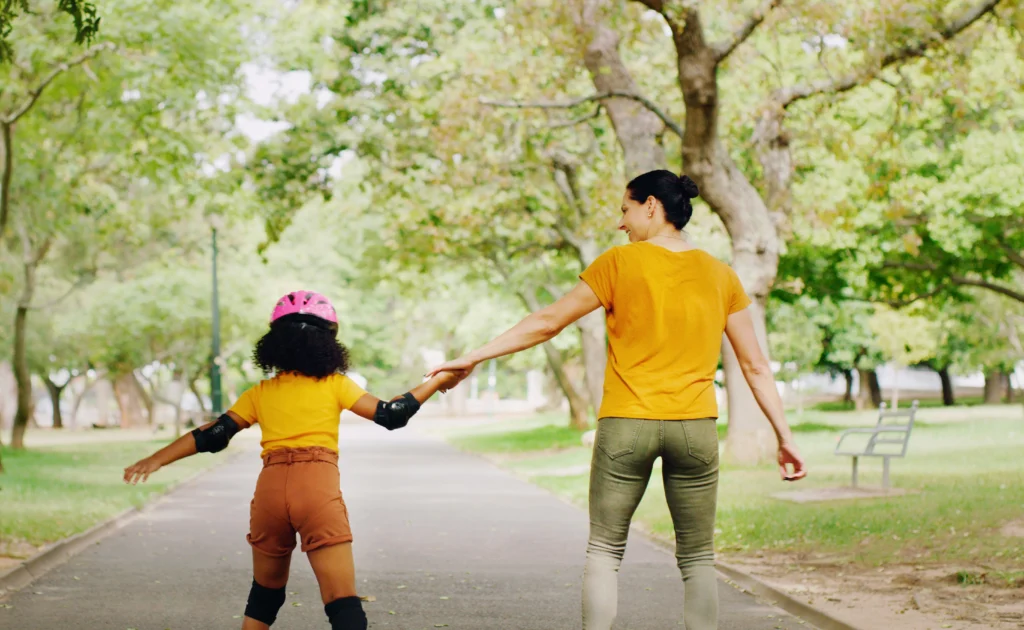
Setting boundaries is an important part of having a healthy relationship and healthy family dynamics, but for many parents this comes with a large amount of shame or guilt when setting and enforcing limits. In a world filled with advice and social pressure on raising a child, it’s easy to think that if you are setting rules or saying “no,” you are being a harsh or unloving parent. However, the conscious parent knows that clear, compassionate boundaries contribute to security, respect, and trust in children, and help children to develop resilience and Emotional Regulation Kids need. Vedangi Brahmbhatt is an experienced Child Development Specialist helping to teach families across the USA how to embrace boundaries without fear or guilt by using mindful parenting strategies. In this blog, learn How to implement conscious parenting techniques at home assertively while being loving and establishing the basis for healthy growth and connection. Recognise Boundaries as Acts of Loving and Caring Setting limits easily lends itself to being viewed as punishment or rejection, when in fact it’s a critical form of nurturing. Boundaries communicate safety and predictability, helping children feel secure. When parents frame limits as acts of protection and love, the guilt that comes with saying “no” lessens. Integrating boundaries into Positive discipline strategies for toddlers helps children understand the “why” behind rules. This approach promotes cooperation over rebellion and supports Holistic Child Development. Practise Nonviolent Communication to Express Boundaries Clearly Clear, empathetic communication is key to setting boundaries without shame. Using Nonviolent Communication techniques, parents can express needs while validating their children’s feelings. This includes calmly stating limits, giving reasons briefly, and offering alternatives. For example, saying, “I want you to be safe, so you need to be in the backyard. Let’s choose some fun toys to play with here,” models respect and offers choice within limits. This helps kids feel heard and reduces power struggles – a true Benefit of mindful parenting for child development. Use Family Meetings and Active Listening Parenting to Build Consensus Including children in discussions of limits through regular Family Meetings promotes ownership and understanding. When kids help set household rules, they’re more likely to respect them. Practising Active Listening Parenting during these discussions enables parents to fully hear children’s perspectives and co-create boundaries aligned with family values. This collaborative process strengthens bonds and minimises guilt parents may feel when imposing limits alone. Conclusion: Boost Your Parenting Power with Compassionate Boundaries Setting boundaries without shame or guilt transforms parenting into a journey of empowerment and love. Clear limits teach safety, responsibility, and Emotional Regulation Kids need for lifelong success. For personalised guidance, consider a consultation with Vedangi Brahmbhatt – an expert in conscious co-parenting and mindful parenting. Her consultations, resources, and even recommendations for the Best Parenting Books offer tools to help families thrive. Don’t forget to follow us on Instagram, and YouTube for ongoing advice and inspiration on Toddler Activities, mindful parenting, and child development. At Vedangi Brahmbhatt, we believe conscious parenting is about boundaries paired with empathy, helping families grow stronger together.
How to Set Boundaries Without Shame or Guilt – A Conscious Parenting Guide
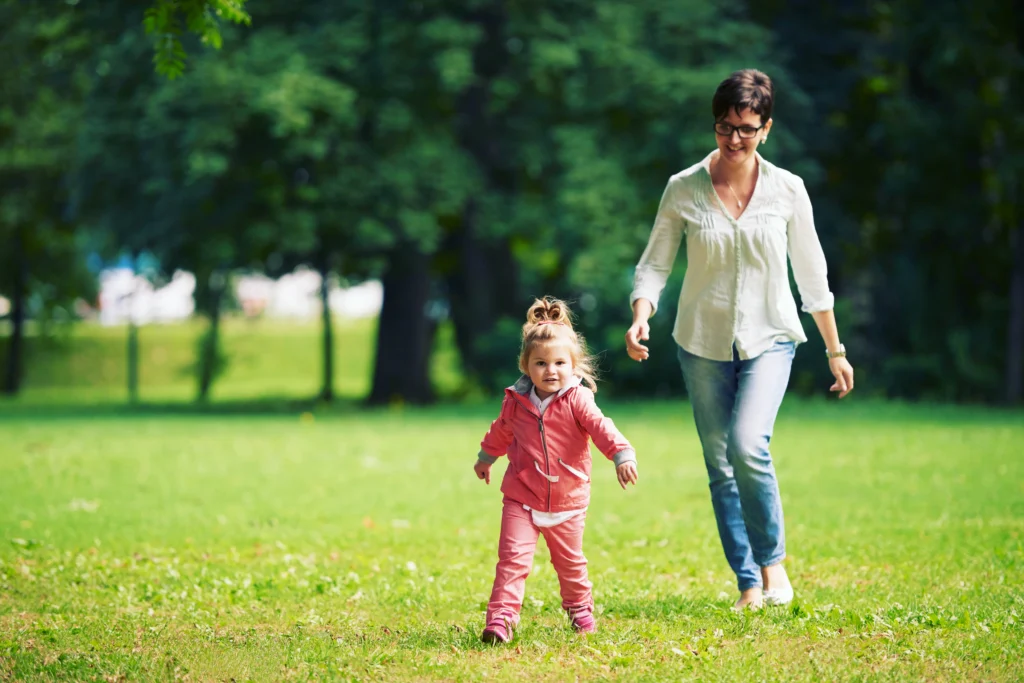
Setting boundaries is an important part of having a healthy relationship and healthy family dynamics, but for many parents this comes with a large amount of shame or guilt when setting and enforcing limits. In a world filled with advice and social pressure on raising a child, it’s easy to think that if you are setting rules or saying “no,” you are being a harsh or unloving parent. However, the conscious parent knows that clear, compassionate boundaries contribute to security, respect, and trust in children, and help children to develop resilience and emotional regulation kids need. Vedangi Brahmbhatt is an experienced Child Development Specialist helping to teach families across the USA how to embrace boundaries without fear or guilt by using mindful parenting strategies. In this blog, learn how to implement conscious parenting techniques at home assertively while being loving and establishing the basis for healthy growth and connection. Recognise Boundaries as Acts of Loving and Caring Setting limits easily lends itself to being viewed as punishment or rejection, when in fact it’s a critical form of nurturing. Boundaries communicate safety and predictability, helping children feel secure. When parents frame limits as acts of protection and love, the guilt that comes with saying “no” lessens. Integrating boundaries into positive discipline strategies for toddlers helps children understand the “why” behind rules. This approach promotes cooperation over rebellion and supports holistic child development. Practise Nonviolent Communication to Express Boundaries Clearly Clear, empathetic communication is key to setting boundaries without shame. Using Nonviolent Communication techniques, parents can express needs while validating their children’s feelings. This includes calmly stating limits, giving reasons briefly, and offering alternatives. For example, saying, “I want you to be safe, so you need to be in the backyard. Let’s choose some fun toys to play with here,” models respect and offers choice within limits. This helps kids feel heard and reduces power struggles – a true benefit of mindful parenting for child development. Use Family Meetings and Active Listening Parenting to Build Consensus Including children in discussions of limits through regular Family Meetings promotes ownership and understanding. When kids help set household rules, they’re more likely to respect them. Practicing Active Listening Parenting during these discussions enables parents to fully hear children’s perspectives and co-create boundaries aligned with family values. This collaborative process strengthens bonds and minimises guilt parents may feel when imposing limits alone. Conclusion: Boost Your Parenting Power with Compassionate Boundaries Setting boundaries without shame or guilt transforms parenting into a journey of empowerment and love. Clear limits teach safety, responsibility, and emotional regulation kids need for lifelong success. For personalised guidance, consider a consultation with Vedangi Brahmbhatt – an expert in conscious co-parenting and mindful parenting. Her consultations, resources, and even recommendations for the best parenting books offer tools to help families thrive. Don’t forget to follow us on Instagram, and YouTube for ongoing advice and inspiration on Toddler Activities, mindful parenting, and child development.
Screen Time + Kids: Conscious Usage of Technology
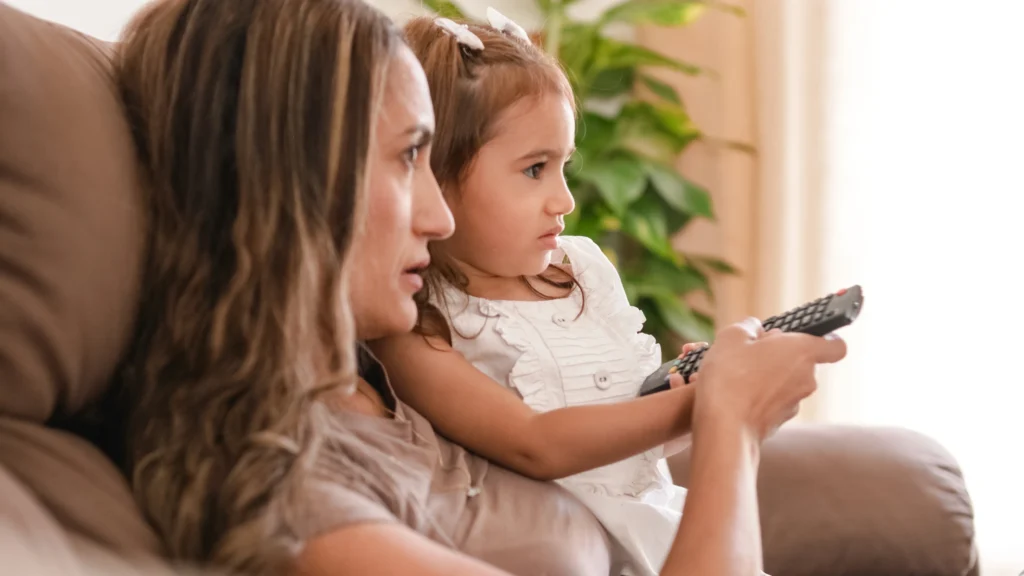
In an electronic age, control of screen time in children is one of the most significant issues amongst parents in the USA. Screen technology has seeped into our lives (through tablets, smartphones, televisions, computers) and it can feel like wading through the sea of their impact on child development. Instead of viewing screens through a lens of limitation and control, the conscious parent embraces a mindful parenting approach to technology that prioritises balance, connection, and thoughtful use. The authoritative Child Development Specialist, and mindful parenting proponent Vedangi Brahmbhatt, advocates healthy screen time as one of the desired results of Holistic Child Development and healthy parent-child bonds. This blog addresses ways in which parents can practically confront screen time in ways that support emotional regulation and good behaviour in children. Prioritise Quality Over Quantity in Toddler Activities and Screen Exposure American Academy of Paediatrics recommends that toddlers have less screen time, but they need to be involved in developmentally appropriate activities. So it’s important that we deliberately reach for high-quality educational and interactive material instead of focusing only on reducing hours. The combination of Toddler Activities that include movement, creativity, and practicality will decrease passive time at the screen and increase active time. Parents are able to create experiences on the screen that are supplemental but not alternatives to physical play and social interaction. Promote Open Conversation with Family Meetings and Active Listening Parenting The use of technology impacts the entire family structure, so dialogue needs to be open. Family meetings organised around technology regulations make them respectful of each other and accountable to each other. At these meetings, parents and children can talk about expectations, benefits, and concerns around screen use. Using Active Listening Parenting methods during these conversations helps parents respond mindfully to children’s experiences with media. This provides a sense of independence for kids, helps build trust, and reduces conflicts around screen time a cornerstone of mindful parenting. Support Emotional Regulation Kids and Holistic Development Around Screen Use Excessive or unregulated screen time may contribute to difficulties in Emotional Regulation Kids often exhibit, such as irritability or distraction. As parents, being good role models of wise technology use, while maintaining consistent structures and limits, provides children with opportunities to practise self-control. The integration of screens into a unified system of Holistic Child Development means balancing digital communication with social skills, creativity, and empathy. The conscious parent also knows when to take breaks from screens to prioritise bonding, play, and family connections in the real world. Conclusion: Being Mindful of Technology to Flourish Families Finding the right balance between screens and children’s well-being requires purpose and empathy. Parents can prepare their toddlers for success in the digital era through prioritisation of quality content, enrichment of Toddler Activities, open Family meetings, Active Listening Parenting, and consistent emotional regulation practices. For personalised guidance, you can reach out to Vedangi Brahmbhatt a Child Development Specialist and expert in conscious co-parenting and mindful parenting. She provides tools and resources that enable you to become the conscious parent your family needs. And remember to subscribe to us on Instagram, and YouTube for more insights into mindful parenting and Holistic Child Development.
Parenting Without Yelling: Ways That Work
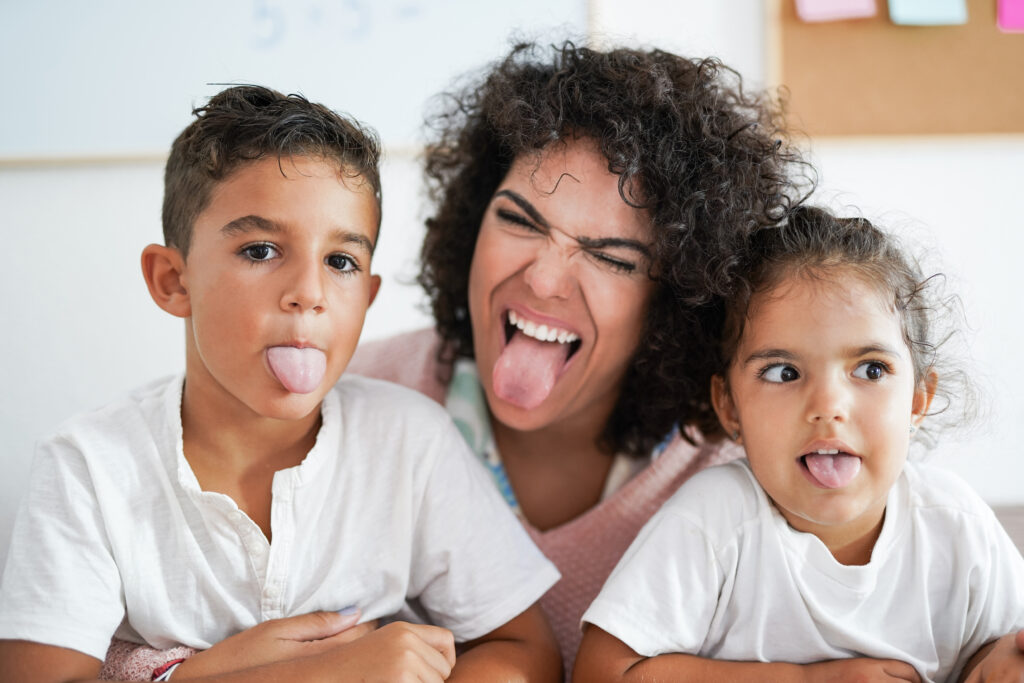
Let’s be real. Parenting isn’t easy, but it can also feel overwhelming. Your child may throw food. They may cry a lot at bedtime. You’re exhausted. They’re exhausted. Sometimes it seems like raising your voice is the only option, but it rarely helps children learn or grow. It just makes things worse. You know there is a better way. As a Child Development Specialist, I work with families who want to nurture confident, emotionally healthy, and happy children. They do not want to yell at or punish you. The good news is that you can nurture your child with compassion while keeping fair rules. It starts with you, a plan, and a few practical approaches that work every day. 1. Pause, breathe, then respond It’s not about never feeling angry, it’s about guiding it into constructive action. A great tool in mindful parenting is to wait before you act. This short time lets you calm down. It stops you from just yelling out. Try this: When you feel the urge to yell, place your hand on your heart and take three deep breaths. You’re not ignoring the problem—you’re simply calming yourself before responding. This shows your child’s emotional regulation. When you do this a lot, your child learns it too. This is a big part of holistic child development. 2. Replace yelling with nonviolent communication. When a child acts out, it is often a cry for help. They may not have the words to say what they need. Act with intention, not with anger. Use Nonviolent Communication to see what they need and show that you understand. Example: Instead of yelling, “Why are you so messy all the time?” Try: “I feel sad when I see toys all over.” I like a clean room. Can we clean up as a team after this game?” This also helps with Active Listening Parenting. Your child will feel truly seen and heard, not judged or embarrassed. 3. Create rituals that reinforce connection and boundaries Ways of stopping problems are as important as ways to fix them. One easy but strong tool is a family meeting. This is a check-in each week. Everyone in the home can share their feelings, express their worries, and talk about the positives. This helps with conscious co-parenting. It shows kids how to work as a team to fix problems. Make routines fun by including simple, enjoyable activity sets for your toddler. This gives your child a plan and a feeling that they are part of the family. A child who feels close to you is less likely to “act out.” A study shows that when you are in tune with a young child’s feelings, they grow up with better self-control. These are the outcomes we hope to see from positive discipline strategies for toddlers. Conclusion: Yelling Isn’t the Only Option Yelling doesn’t make you a bad parent, it means you’re human. But if you’re reading this, you’re already taking the first step toward change. You can be the conscious parent your child needs. Tip: Develop a ‘calm plan’ together, so when emotions are out of control, you both know it’s time to pause. Only after you’re both calm, you can talk things through. This plan gives you both a tool to use when feelings seem uncontrollable. Remember this: you are not on your own. We can help you. Our conversations are guided by the ideas of Conscious Co-Parenting NJ. We also draw on proven strategies from some of the best parenting books available. Don’t forget to follow us on Instagram, and YouTube for more good ideas. For new news, click here to see our most recent press releases.
How to Help Your Child with Big Feelings and Not Act Fast
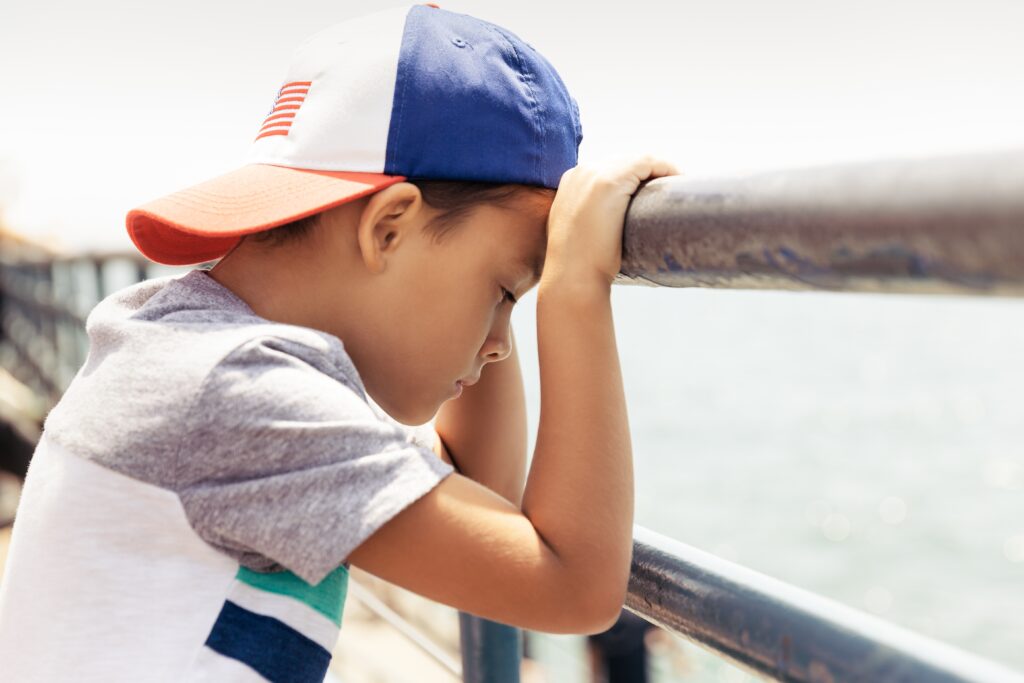
If you are a parent, you have seen all of your child’s feelings. Tears for the wrong bowl. Being upset at bed time. Or mad when they have to share. In those hard times, it is easy to act fast. But what if you chose to help, not just act? As a Child Development Specialist, I have helped many parents in the U.S. and other places use mindful parenting. This way helps you be calm even when your child is not. I will show you how to deal with your own feelings and help your child with their big feelings. This helps you both feel close and helps with emotional regulation. 1. Pause First, Act Later It may sound easy, but to pause first is a big help. Big feelings can come from a need. They may be hungry or tired. Or there is too much going on. When a child’s head is full of big feelings, they can’t think well. They need to feel safe and close to you. As the conscious parent, your job is not to fix the feeling. Your job is to be calm with them. Try this: Put your hand on your heart when your child is upset. Count to five in your head. This can help calm your body down so you can show them how to be calm. 2. Show You See, Don’t Make It Small Did you ever say, “It’s not a big deal”? Then the big feelings got worse. That is because to them, it is a big deal. Active Listening Parenting is when you say back what your child feels. You can say it even if the feeling seems too big. This is the base of Nonviolent Communication. You show you see their feeling. You don’t make them feel bad or wrong now. You teach your child that feelings are okay. You show them it is safe to show how they feel. This helps with emotional regulation kids can learn for life. 3. Make Rules with Love Being kind does not mean there are no rules. Kids do well when they have rules, more so when rules are set with love. Example: “It is okay to be mad, but it is not okay to hit. Let’s use our words or take a break.” This is part of positive discipline strategies for toddlers. You teach, not punish. You are still the conscious parent. You lead, but you don’t force. Over time, this makes Holistic Child Development. They learn about feelings, and they learn to care, talk, and be strong. A Look at Parents Now A 2023 report from the American Psychological Association said that 7 out of 10 parents in the U.S. say they act on their feelings in hard times with their kids. But kids whose parents are calm and kind have been shown to feel good about who they are. They do better in school. They are good with other kids. That is the real power of how to implement conscious parenting techniques at home. It is not just for now. It is for how they grow and feel for a long time. To End: Helping is the New Way No one is a perfect parent. We all have times when we use a loud voice or feel it is all too much. But each time you are close is a time to teach your child. You can teach them that feelings are not to be feared. They are for us to know more. Tip: Put a “Feelings Chart” on your fridge. It helps your child name their feeling. It gives you a picture to help you start a calm talk. Don’t forget to follow us on Instagram, and YouTube for more ideas and help to raise kids who are smart about feelings. For new news, click here to see our new press releases.

